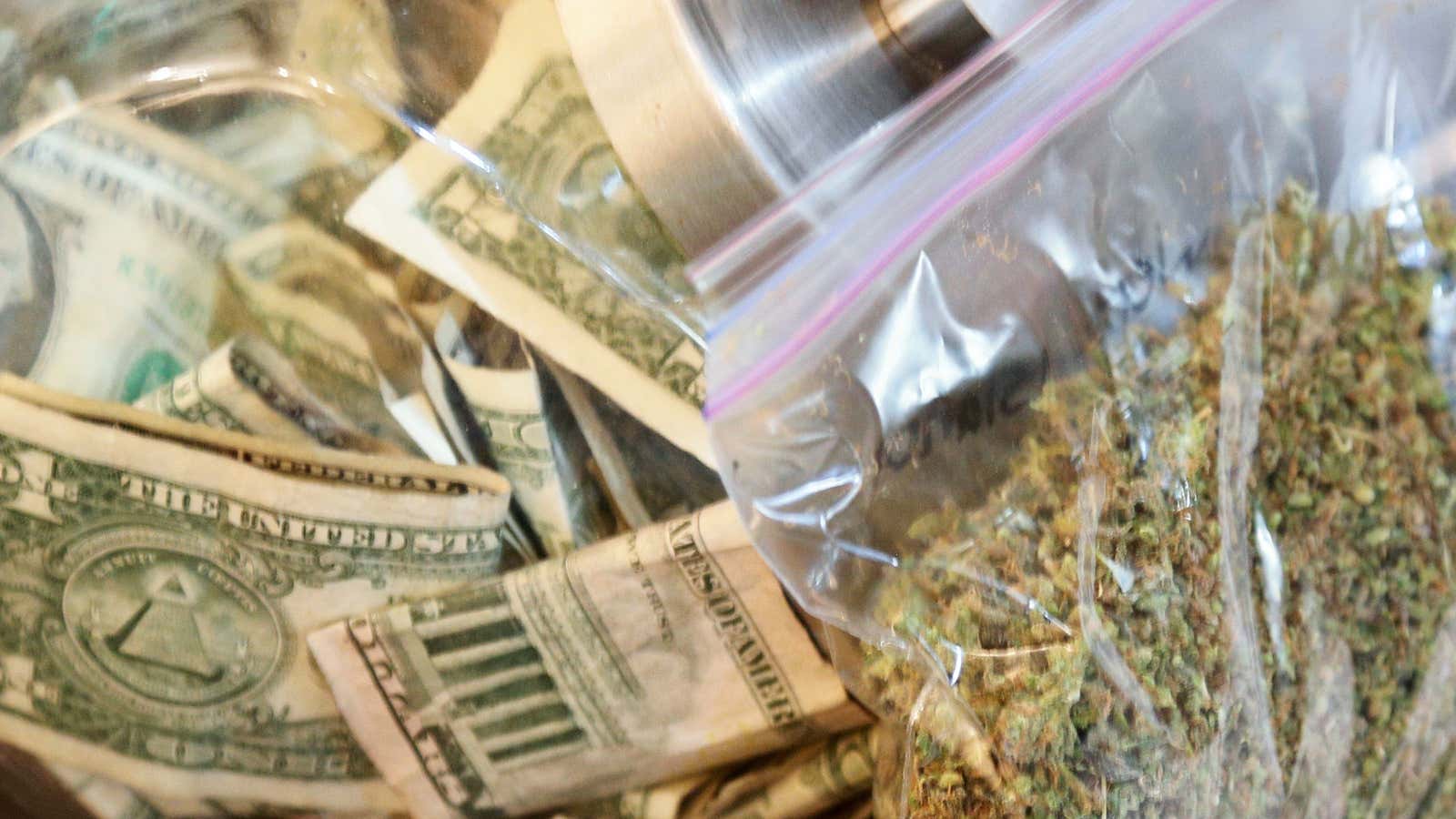Legal pot businesses are still something of an oxymoron in the US. They exist, and are authorized in states where marijuana has been legalized medicinally or recreationally. But they are still not legal in the eyes of the US government’s purposes. Weird, right?
Even weirder is that these businesses pay steep federal taxes. More taxes than most, in fact. And that’s because of an odd clause in the tax code, USC 280E, for the law-abiding illegal-drug trafficker filing business taxes.
The classification is actually quite common because all state-registered pot businesses, whether they’re medical marijuana dispensaries or edibles makers creating cannabinoid candies, are technically illegal drug dealers of a Schedule I substance, as the Internal Revenue Service sees it.
Many federally legal businesses only manage to stay afloat because they benefit from tax credits and can deduct costs of operation from profits on IRS filings—things like employee expenses, equipment and space rental, business gifts, travel, and promotions, to name just some. But marijuana businesses, as illegal drug traffickers under 280E, can’t get certain credits or deduct operational expenses from federal returns.
In challenges to IRS claims, lawyers for cannabis businesses have won concessions. For example, a savvy dispensary owner can structure the business as a corporation and also open a related legal operation, allowing some expenses to be legitimately claimed, as tax attorney Bob Carp explained to Leafly.
Still, the most vigilant accountants and lawyers can’t eliminate the fundamental problem. In their home states, where they are legal, authorized pot purveyors are subject to strict regulation—which means these businesses usually are intent on being proper. But operating in the shadows of the federal law while still reporting expenses meticulously presents obstacles, both practical and psychological.
Tim Moxey would not consider himself an illegal drug trafficker under any circumstances, but for his federal tax filings. The cannabis edibles maker from London with an MBA from Dartmouth started Botanica Seattle in Washington state, armed with a track record as an intrepid entrepreneur and inspiration from an article on marijuana’s promise in the Economist.
He told Quartz the federal classification bothers him quite a bit, and not just because it costs him more money to do business. It’s also disheartening, he says. Luckily, he’s got a million-dollar operation and a direct line to a supply of relaxing cannabis candy to provide some solace.
